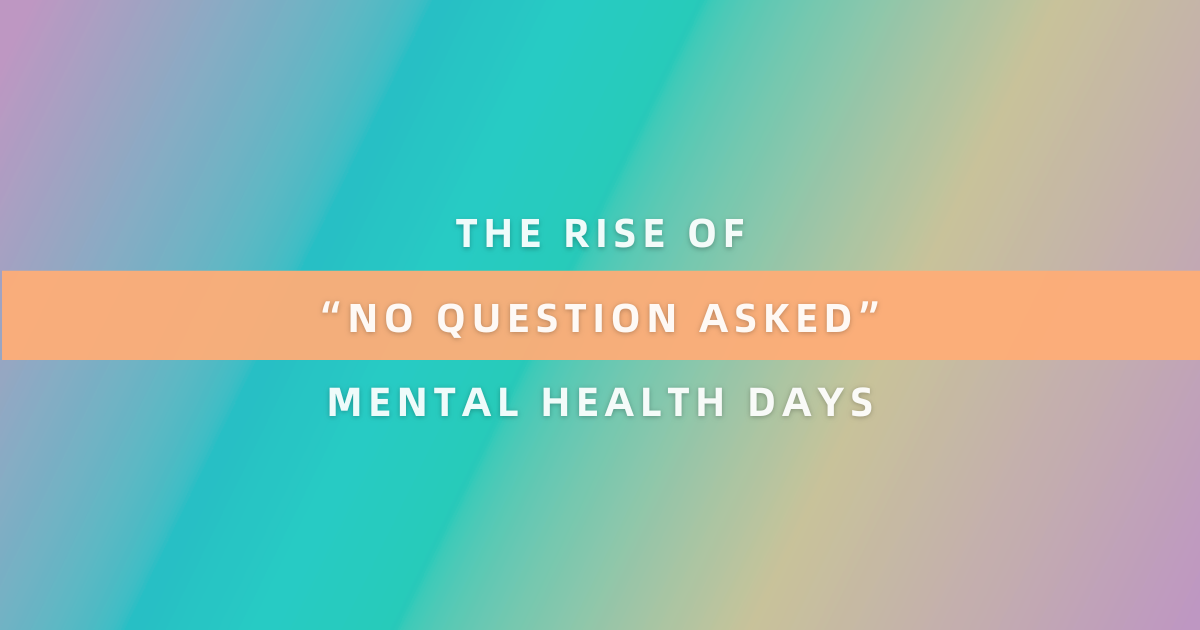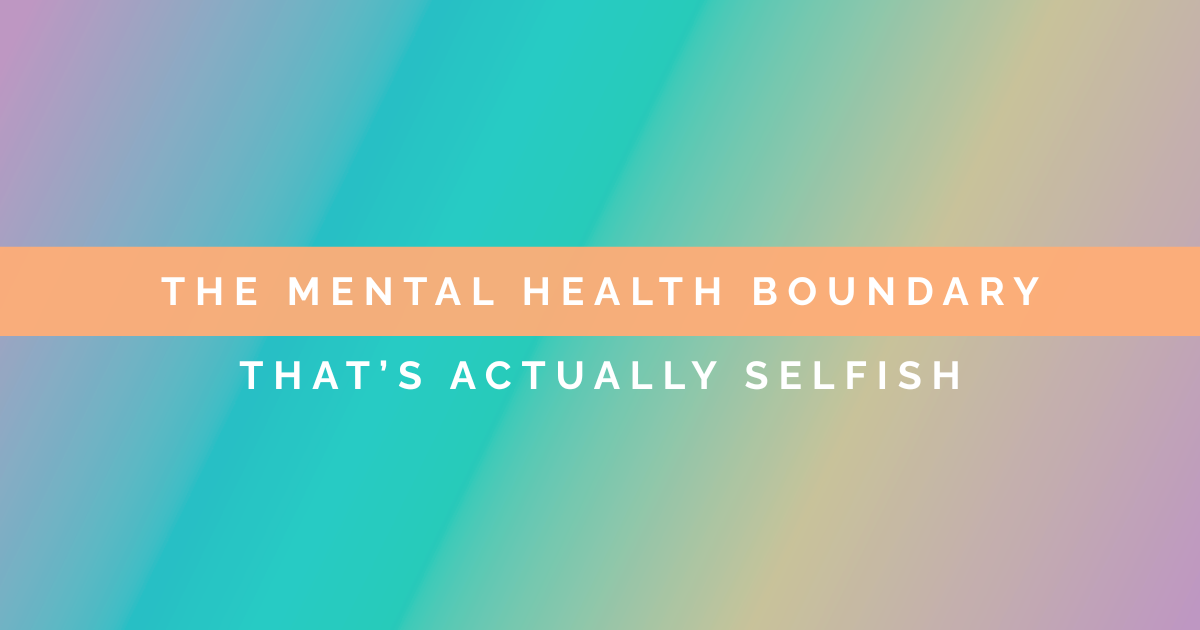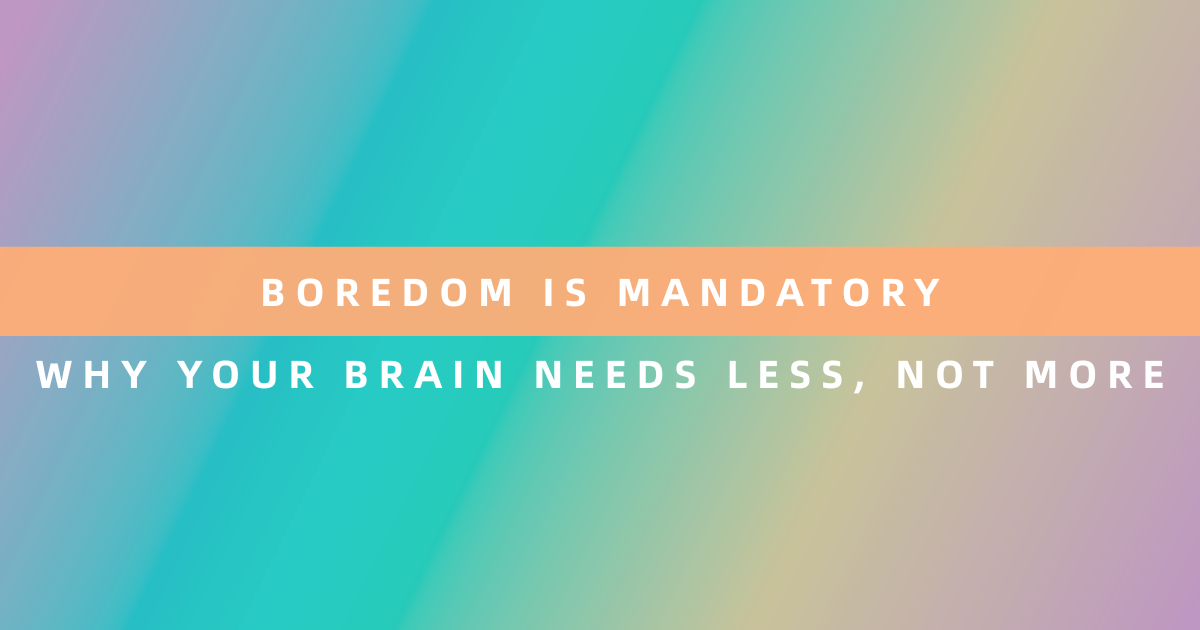Not long ago, calling in sick for mental health reasons required elaborate cover stories about physical symptoms. Employees would claim food poisoning, migraines, or mysterious stomach bugs rather than admit they needed time off for anxiety, depression, or overwhelming stress. The fear of being labeled “weak” or “unreliable” made authentic conversations about mental health impossible in most workplaces.
This culture of silence created a vicious cycle where mental health problems worsened due to a lack of support and fear of professional consequences. Employees pushed through panic attacks, worked while severely depressed, and pretended everything was fine until they reached complete burnout or crisis points that required extended leave.
The traditional approach to workplace mental health focused exclusively on crisis intervention rather than prevention. Companies offered Employee Assistance Programs that employees rarely used due to stigma, and mental health support was typically limited to reactive measures after someone had already experienced a breakdown.
Many organizations inadvertently punished employees for mental health struggles through attendance policies that counted mental health days as unexcused absences, performance reviews that penalized stress-related productivity changes, and workplace cultures that celebrated overwork and emotional suppression.
The financial and human costs of this approach became increasingly apparent as mental health issues reached epidemic proportions. Companies began to recognize that ignoring employee mental health was not only morally problematic but also economically unsustainable, leading to higher turnover, increased healthcare costs, and decreased productivity across entire organizations.
This recognition, combined with growing awareness of mental health issues among younger employees and the impact of global events like the pandemic, has created unprecedented momentum for workplace mental health reform. Companies are finally acknowledging that supporting employee mental health is not just the right thing to do but also essential for business success.
How the Conversation Around Workplace Mental Health Has Changed
The shift in workplace mental health conversations represents one of the most significant cultural changes in modern employment, driven by generational differences, increased awareness, and the undeniable business case for supporting employee wellbeing.
Generational influence has played a crucial role in this transformation. Millennials and Gen Z employees entered the workforce with different expectations about work-life balance and mental health support. These generations grew up with greater awareness of mental health issues and less stigma around seeking help, creating pressure on employers to adapt their policies and cultures.
High-profile advocacy by business leaders, celebrities, and public figures has normalized conversations about mental health in professional settings. When CEOs and executives openly discuss their own mental health struggles and the importance of workplace support, it creates permission for employees at all levels to have similar conversations.
Research validation has provided compelling evidence that supporting employee mental health improves business outcomes. Studies consistently show that companies with strong mental health support have lower turnover rates, higher productivity, reduced healthcare costs, and better employee engagement scores.
Pandemic acceleration forced organizations to confront the reality that traditional approaches to workplace mental health were inadequate. The collective trauma and stress of the pandemic made it impossible to ignore the mental health needs of employees, leading to rapid policy changes and cultural shifts.
Legal and regulatory changes in some jurisdictions have required employers to provide mental health support or recognize mental health conditions as legitimate reasons for medical leave. These legal frameworks have pushed companies to develop more comprehensive mental health policies.
Economic recognition of the costs associated with poor mental health has motivated employers to invest in prevention and support. The World Health Organization estimates that depression and anxiety disorders cost the global economy over $1 trillion annually in lost productivity, making mental health support a clear business imperative.
Technology enablement has made mental health support more accessible and less stigmatized through digital platforms, apps, and virtual counseling services. These technological solutions allow employees to access support confidentially and on their own schedules.
What ‘No Questions Asked’ Mental Health Policies Actually Look Like
Progressive “no questions asked” mental health policies vary in their specific implementation, but they share common principles that prioritize employee wellbeing over traditional attendance management approaches.
Dedicated mental health days represent the most straightforward approach, where companies provide specific days off that employees can use for mental health purposes without requiring detailed explanations or medical documentation. These days are typically separate from traditional sick leave and vacation time, acknowledging that mental health needs are distinct from physical illness or recreation.
Flexible sick leave policies allow employees to use existing sick time for mental health purposes without requiring proof of physical symptoms or medical appointments. This approach recognizes that mental health is health, and employees should have the same autonomy to address psychological needs as they do physical ones.
Mental health personal days provide additional paid time off specifically designated for mental health and wellness activities. These policies often explicitly state that employees can use these days for therapy appointments, stress management, or simply taking time to recharge without needing to justify their specific activities.
Flexible work arrangements support mental health by allowing employees to modify their schedules or work environments when needed. This might include options for remote work during stressful periods, flexible hours to accommodate therapy appointments, or reduced schedules during particularly challenging times.
No documentation requirements eliminate the need for medical notes or detailed explanations when employees take mental health time. This approach recognizes that requiring documentation can create additional stress and barriers to accessing needed support.
Proactive check-in systems involve managers regularly asking about employee well-being and workload management rather than waiting for employees to request help. These systems create cultures where mental health conversations happen naturally rather than only during crises.
Comprehensive support integration combines time off policies with access to mental health resources like counseling services, stress management programs, and wellness initiatives. This holistic approach recognizes that mental health support requires more than just time away from work.
Leadership modeling involves managers and executives openly using mental health days and discussing the importance of mental health support. This modeling helps normalize the use of these benefits and reduces stigma around mental health conversations.
How Different Industries Are Implementing Mental Health Days
The implementation of mental health day policies varies significantly across industries, reflecting different workplace cultures, regulatory environments, and operational demands.
Technology companies have often led the way in progressive mental health policies, with many offering unlimited mental health days, on-site counseling services, and comprehensive wellness programs. These companies recognize that creative and analytical work requires mental clarity and emotional well-being, making mental health support directly tied to productivity and innovation.
Major tech firms have implemented policies ranging from monthly mental health days to quarterly wellness weeks where entire teams take coordinated time off. Some companies have created “mental health first aid” training programs for managers and peer support networks that help employees navigate mental health challenges.
Healthcare organizations face unique challenges in implementing mental health days due to patient care requirements and staffing demands. However, many healthcare systems have developed innovative approaches like mental health float pools, where temporary staff cover for employees taking mental health time, and peer support programs specifically designed for healthcare workers.
Some healthcare organizations have implemented “reset days” where employees can take immediate time off when feeling overwhelmed, recognizing that healthcare workers mental health directly impacts patient care quality and safety.
Financial services companies have increasingly recognized the high-stress nature of their industry and implemented comprehensive mental health support programs. These often include not just mental health days but also stress management training, financial counseling to address money-related stress, and modified performance expectations during difficult periods.
Education systems have begun implementing mental health days for both teachers and students, recognizing the emotional demands of educational work. Some school districts have created substitute teacher pools specifically for mental health coverage and professional development days focused on educator wellbeing.
Manufacturing and industrial companies face unique challenges in implementing mental health days due to production requirements and safety considerations. However, many have developed creative solutions like flexible scheduling, job rotation programs to reduce stress, and on-site counseling services.
Retail and service industries have traditionally lagged in mental health support due to high turnover and part-time workforce challenges. However, some progressive companies have implemented programs like same-day mental health coverage, employee assistance programs accessible to part-time workers, and manager training on recognizing mental health concerns.
Startups and small businesses often have more flexibility to implement innovative mental health policies, but may lack the resources for comprehensive programs. Many have focused on creating supportive cultures where mental health conversations are normalized and flexible arrangements are possible.
Why Employees Are Finally Speaking Up About Mental Health Benefits
The voices of employees who have experienced mental health day policies firsthand provide compelling evidence of their impact on both individual well-being and organizational culture.
Reduced stigma experiences represent one of the most commonly reported benefits of no questions asked mental health policies. Employees describe feeling relieved at not having to fabricate physical symptoms or elaborate cover stories when they need mental health support. This honesty in communication often extends to other areas of work, improving overall team dynamics and trust.
Many employees report that knowing mental health days are available reduces their anxiety about mental health struggles, creating a sense of security that actually helps prevent mental health crises. The knowledge that support is available when needed often reduces the frequency with which employees actually need to use these benefits.
Productivity improvements are frequently mentioned by employees who have access to mental health days. They describe returning to work feeling refreshed, focused, and more creative after taking time to address their mental health needs. This contrasts sharply with the experience of pushing through mental health struggles, which often leads to decreased productivity and quality of work.
Relationship benefits extend beyond the workplace, with employees reporting that mental health day policies help them maintain better relationships with family and friends. When work-related stress is manageable, employees have more emotional energy available for their personal relationships and activities.
Career longevity is another commonly reported benefit, with employees describing feeling more committed to organizations that support their mental health. This loyalty often translates into longer tenure, reducing turnover costs and maintaining organizational knowledge and relationships.
Physical health improvements are often reported by employees who use mental health days, as addressing psychological stress frequently leads to better sleep, reduced physical symptoms, and improved overall health. This creates a positive cycle where mental health support leads to better physical health, which in turn supports better mental health.
Skill development opportunities often emerge when employees have time to address their mental health needs through therapy, stress management techniques, or wellness activities. These skills then benefit both the individual and the organization as employees become more resilient and emotionally intelligent.
Team dynamics improve when team members feel supported in addressing their mental health needs. Employees report more open communication, increased empathy, and better collaboration when mental health support is normalized in their workplace culture.
What Companies Are Learning From Progressive Mental Health Policies
Organizations that have implemented comprehensive mental health day policies are discovering unexpected benefits and learning valuable lessons about the relationship between employee well-being and business success.
Usage patterns often surprise companies, with many finding that employees use mental health days less frequently than anticipated. This suggests that the security of knowing support is available may be as important as actually using the benefit. Companies also learn that usage varies significantly by role, department, and individual circumstances.
Timing insights reveal that mental health day usage often correlates with predictable stressors like busy seasons, major deadlines, or organizational changes. This knowledge helps companies proactively plan for coverage and support during high-stress periods.
Manager training needs become apparent as companies implement mental health policies. Managers often require specific training on how to respond to mental health day requests, how to check in with employees appropriately, and how to create supportive team cultures that normalize mental health conversations.
Communication strategies prove crucial for successful implementation. Companies learn that clear, consistent messaging about mental health policies helps employees understand and utilize benefits effectively. Regular communication also helps combat stigma and reinforces organizational commitment to mental health support.
Integration requirements become clear as companies realize that mental health days work best when integrated with other wellness initiatives, flexible work policies, and comprehensive healthcare benefits. Standalone mental health day policies are less effective than holistic approaches to employee wellbeing.
Measurement challenges emerge as companies try to assess the impact of mental health policies. Traditional metrics like productivity and turnover may not capture the full benefits of mental health support, leading organizations to develop new ways of measuring employee well-being and engagement.
Cultural transformation often occurs more broadly than expected when companies implement mental health day policies. These policies can catalyze broader conversations about work-life balance, organizational values, and employee support that extend far beyond mental health.
Legal considerations become important as companies navigate privacy requirements, documentation needs, and compliance with various employment laws while implementing mental health policies. Organizations learn to balance support with legal requirements and employee privacy rights.
How to Advocate for Mental Health Days in Your Workplace
Advocating for mental health day policies in your workplace requires strategic planning, compelling communication, and patience to navigate organizational change processes.
Business case development forms the foundation of effective advocacy. Research the costs of employee turnover, absenteeism, and decreased productivity in your industry. Gather data on the business benefits of mental health support, including improved retention, reduced healthcare costs, and increased employee engagement.
Stakeholder identification helps you understand who needs to be convinced and who might be allies in your advocacy efforts. This typically includes HR leadership, senior management, and potentially employee resource groups or union representatives, depending on your organizational structure.
Proposal preparation involves developing a clear, specific proposal for mental health day implementation. Include policy details, implementation timelines, communication strategies, and methods for measuring success. Address potential concerns about coverage, abuse, and costs in your proposal.
Pilot program suggestions can make mental health day policies feel less risky to organizations that are hesitant about major policy changes. Propose starting with a specific department, a limited number of days, or a trial period to demonstrate the benefits before expanding organization-wide.
Success story sharing involves researching and presenting examples of similar organizations that have successfully implemented mental health day policies. Include specific outcomes, lessons learned, and testimonials from both employees and managers.
Timing considerations affect the success of your advocacy efforts. Look for opportunities when your organization is already focused on employee wellbeing, benefits reviews, or cultural change initiatives. Avoid times when the organization is dealing with major crises or financial pressures.
Coalition building strengthens your advocacy by involving other employees who support mental health day policies. Consider conducting informal surveys to gauge employee interest and gathering supporter testimonials to include in your proposal.
Follow-up strategies ensure that your advocacy efforts maintain momentum even if initial proposals are not immediately accepted. Regular check-ins with decision makers, updated research, and continued demonstration of employee interest help keep the issue visible.
The Future of Mental Health in the Workplace
The evolution of workplace mental health support is accelerating rapidly, with emerging trends suggesting that current mental health day policies represent just the beginning of a broader transformation in how organizations approach employee wellbeing.
Preventive mental health approaches are becoming more sophisticated, with companies implementing early intervention programs, stress monitoring systems, and proactive support before employees reach crisis points. These approaches recognize that preventing mental health problems is more effective and cost-efficient than treating them after they develop.
Personalized mental health support is emerging through technology platforms that can assess individual needs and provide customized resources and interventions. These systems might recommend specific types of mental health days, suggest optimal timing for breaks, or connect employees with targeted support resources.
Integration with physical health is becoming more seamless as organizations recognize the interconnected nature of mental and physical well-being. Future policies may include holistic wellness days that address both mental and physical health needs simultaneously.
Real-time support systems are being developed that can provide immediate mental health assistance when employees need it most. These might include AI-powered chatbots, peer support networks, or on-demand counseling services that complement traditional mental health days.
Organizational mental health metrics are becoming more sophisticated, with companies developing better ways to measure and improve workplace mental health culture. These metrics help organizations understand the effectiveness of their mental health support and identify areas for improvement.
Legal and regulatory evolution is likely to continue, with potential legislation requiring mental health support or protecting employees who take mental health days. These changes may standardize mental health day policies across industries and regions.
Cultural normalization will continue as mental health conversations become increasingly common in workplace settings. Future workplaces may routinely discuss mental health in team meetings, performance reviews, and strategic planning sessions.
Workplace design considerations are incorporating mental health principles into physical and virtual work environments. This includes spaces for decompression, noise reduction, natural light optimization, and other environmental factors that support mental well-being.
Ready to transform your relationship with workplace mental health and develop strategies for maintaining wellbeing in demanding work environments? Explore Theryo’s AI-enhanced journaling tools that help you track your mental health patterns, process work-related stress, and maintain the emotional balance needed for sustainable career success. Your mental health deserves the same attention and care as your physical health.
Frequently Asked Questions
1. What exactly does a “no questions asked” mental health day policy mean?
A “no questions asked” mental health day policy allows employees to take time off for mental health purposes without requiring detailed explanations, medical documentation, or proof of symptoms. Employees can simply request the day off for mental health reasons without having to justify their specific circumstances.
2. How are mental health days different from regular sick days or vacation time?
Mental health days are specifically designated for psychological well-being and often don’t require the same documentation as sick days. Unlike vacation days, they’re intended for rest and recovery rather than recreation. Many companies provide mental health days as additional time off beyond traditional sick leave and vacation benefits.
3. Can my employer legally ask for proof or documentation when I take a mental health day?
This depends on your company’s specific policy and local laws. Many progressive policies explicitly state that no documentation is required, while others may require basic notification without detailed explanations. Check your employee handbook or speak with HR about your company’s specific requirements.
4. What if my workplace doesn’t currently offer mental health days?
Start by researching your company’s existing benefits and speaking with HR about potential policy changes. Consider advocating for mental health days by presenting the business case, gathering employee interest, and proposing pilot programs. You might also work with employee resource groups or unions to advocate for these benefits.
5. How often can I typically take mental health days without it affecting my job security?
This varies significantly by company policy and individual circumstances. Most policies specify a certain number of mental health days per year, often ranging from 1-5 days. Using these days as intended and maintaining good overall job performance should not affect your job security, but it’s important to understand your specific company’s policies.
6. What should I do on a mental health day to make it most effective?
Focus on activities that genuinely support your mental well-being, such as rest, therapy appointments, stress-reducing activities, or addressing personal issues that are causing stress. Avoid work-related activities and try to engage in self-care practices that help you return to work feeling refreshed and more resilient.
7. How do I know when I need to take a mental health day?
Consider taking a mental health day when you notice persistent stress, anxiety, or depression that’s affecting your work performance or personal life. Physical symptoms like headaches, sleep problems, or fatigue that are stress-related may also indicate you need mental health support. Trust your instincts about when you need time to recharge.
8. What if I’m worried about how taking mental health days will look to my manager or colleagues? These concerns are natural but often unfounded in companies with supportive mental health policies. Focus on maintaining good communication with your manager and consistent job performance. Remember that using benefits as intended is your right as an employee, and taking care of your mental health often improves your work performance.
9. Can part-time or contract employees typically access mental health day benefits?
This varies by company policy. Some organizations extend mental health benefits to all employees regardless of status, while others limit benefits to full-time employees. Check with HR about benefit eligibility or advocate for inclusive policies that support all workers’ mental health needs.
10. How do mental health days work in industries with coverage requirements, like healthcare or customer service?
Many companies in these industries have developed solutions like mental health float pools, cross-training programs, or flexible scheduling to accommodate mental health days. Some organizations allow same-day coverage requests for mental health emergencies. The key is advanced planning and systems that prioritize both employee well-being and operational needs.
11. What if I need more mental health support than what mental health days can provide?
Mental health days are just one component of comprehensive mental health support. If you need additional help, consider using your company’s Employee Assistance Program, mental health insurance benefits, or speaking with HR about additional accommodations. Mental health days work best when combined with other forms of support.
12. How can managers best support employees who take mental health days?
Managers should respond to mental health day requests with the same professionalism as any other type of time-off request. Avoid asking for detailed explanations, ensure coverage is arranged without making the employee feel guilty, and check in appropriately when the employee returns without prying into personal details. Creating a supportive team culture is key to successful implementation.







